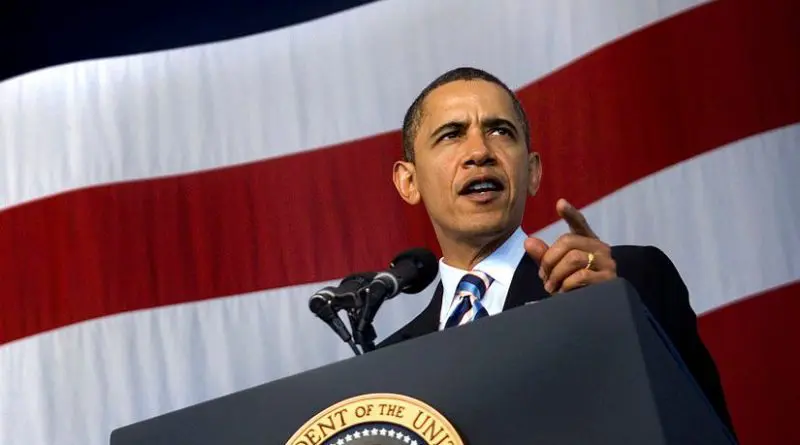Where’s Joe The Plumber When You Need Him? – OpEd
Four years ago, a chance encounter between Barack Obama and Samuel “Joe the Plumber” Wurzelbacher injected inequality right into the heart of the 2008 presidential race.
Obama explained to the then-unknown Wurzelbacher that “when you spread the wealth around, it’s good for everybody.” GOP nominee John McCain immediately jumped on Obama’s remark, suddenly making wealth redistribution one of that campaign’s hottest issues.
Joe the Plumber has since largely faded from view. He’s running a lackluster campaign for Congress as a conservative Republican. And the issue that lent him celebrity status has more or less disappeared. In the 2012 presidential debates, we’ve had not one mention of America’s incredibly top-heavy distribution of income and wealth.
President Obama, to be sure, has talked about taxing the rich back to Clinton-era levels. But those Clinton rates didn’t stop the concentrating of America’s wealth. Our rich have seen their fortunes soar for over three decades now.
And where do we stand right now with this concentration? One stunning answer has just come from researchers at Credit Suisse, the Swiss banking giant. America’s rich aren’t just pulling away from the rest of America, the Credit Suisse Research Institute’s new Global Wealth Report details. They’re pulling away from the rest of the world’s rich.
Between the middle of 2011 and the middle of 2012, nearly 1.8 million European millionaires lost their millionaire status. But American millionaires have actually expanded their ranks. Americans now make up a stunning 39 percent of all the global households worth at least $1 million.
Among deep pockets worth at least $50 million, the U.S. global wealth dominance becomes even more pronounced. Of these 84,500 global super rich, 45 percent hail from the United States.
Joe the Plumber and other fans of great fortune don’t have much of a problem with this huge concentration of wealth. Should the rest of us? Would our lives be somewhat more secure if we did more in the United States to share the wealth?
The researchers at Credit Suisse have crunched all the numbers we need to answer this question. Three of today’s most important developed nations, their data show, turn out to have almost identical quantities of wealth per adult.
If you add up the total wealth in each of these three countries — the United States, France, and Japan — and then divide that wealth by adult population, you get virtually the same average wealth: $262,351 per adult in the United States, $265,463 in France, and $269,708 in Japan.
In real life, of course, we don’t divide wealth equally. Some of us have more wealth than others. But the degree of inequality, the new Credit Suisse data remind us, varies enormously among nations. In the United States, most wealth rests near the top. In France and Japan, much more wealth rests around the middle.
How much of a difference — to the typical person — do these differences in inequality make? A great deal. To be more specific: over $100,000 worth of difference.
In the grossly unequal United States, our most typical — median — adult now holds $38,786 worth of wealth. Half of American adults have more than $38,786, half have less.
Japan’s most typical adults have a net worth of $141,410. In France, a nation more equal than the United States but not as equal as Japan, the typical adult holds $81,274.
In other words, a typical Japanese household today sports more than triple the wealth of a typical U.S. household, and typical French households have twice as much.
Average Japanese and French don’t work any harder than average people in the United States. They just live in societies that do a much better job of sharing the wealth that their work creates.
Maybe one day Americans will live in a society that shares. Maybe one day our presidential candidates will even talk about sharing.
OtherWords columnist Sam Pizzigati edits Too Much, the Institute for Policy Studies’ weekly newsletter on excess and inequality. OtherWords.org

